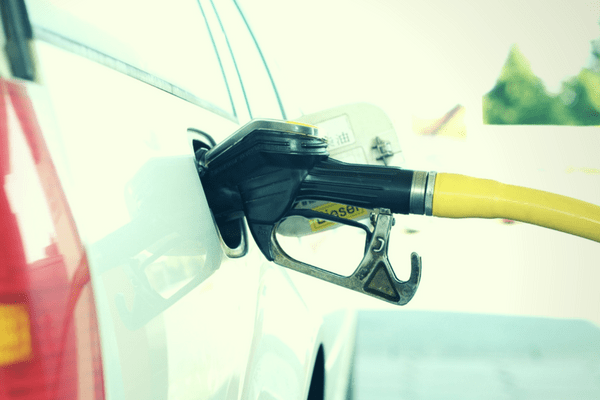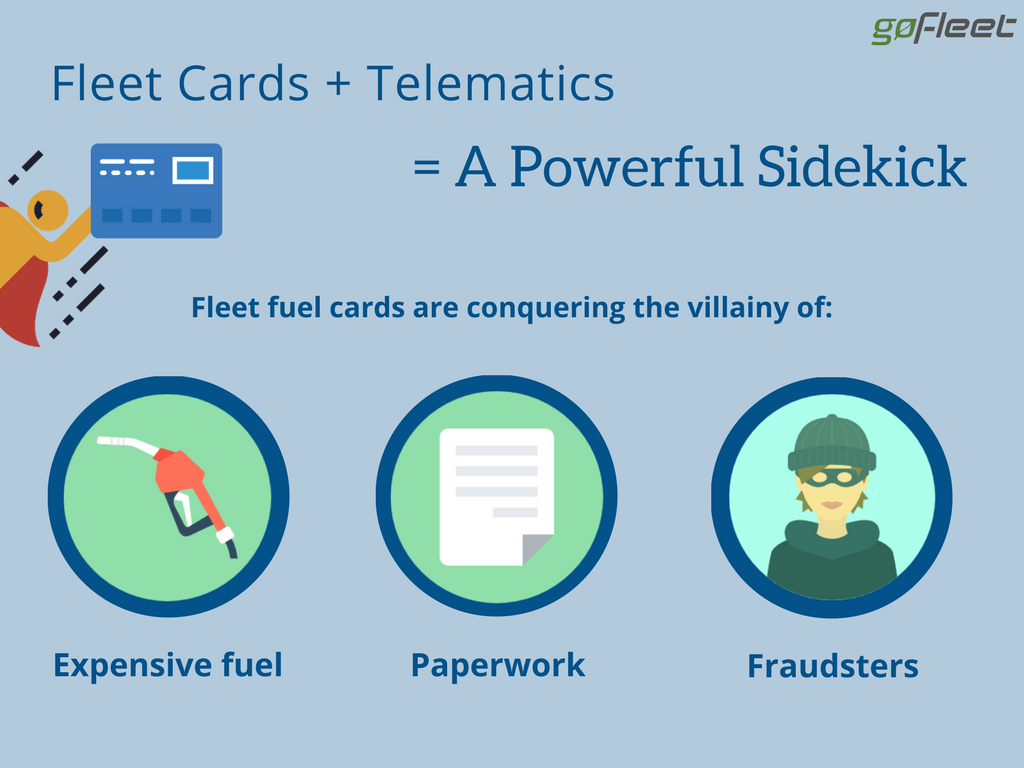3 Villains That Fleet Fuel Cards Are Conquering
Fleet fuel cards are a trusty sidekick to conquering fuel and administration problems! A recent development for fleet fuel cards includes partnering with telematics. Because of this partnership, fleet fuel cards are capturing more data than ever.
What does this mean for fleets? For a lot of fleets, this means that fuel cards are getting a serious upgrade to fight off villainy! Let’s take a look at how they tackle the villainy of expensive fuel prices, dry paperwork and sly fraudsters.
Villain #1: High Fuel Prices
Well, this was bound to happen! After years of relatively modest prices, fuel is getting more costly. Big events in 2017 such as hurricanes caused the spike. And what does this mean for fleet managers? Fleet managers are tasked with minimizing fuel expenses and need a sidekick to counter rising prices.
One of the ways to fight expensive fuel is to reconsider how to pay for fuel. For fleets that use credit cards or cash, they could be overpaying. According to Glen Sokolis, president of the fuel management group Sokolis Group, fuel cards help save 5 to 20 cents versus other ways to pay.
How are fuel cards getting this discount? This is possible because fleet fuel cards are partnering up with gas stations to get kick-butt deals. For example, some cards provide live updates on which stations have the best deals. Other cards provide loyalty programs to earn free fuel.
Villain #2: Paperwork
Holy heap of paperwork, fleet manager! What are we going to do? One of the biggest challenges without fuel cards is managing fuel reports. To the annoyance of administrators, they have to fill in forms for things like receipts and reimbursements.
Instead of going through this process, fuel card software makes it easier. These software capture data such as fuel purchases and usage. As a result, it is very easy to generate reports.
And what do these reports mean for fleets? For administrators, it frees time to work on projects other than data entry. As well, for managers, fuel software eliminate human error and creates accurate reports.
Villain #3: Fraudsters
In a perfect workforce, everyone follows the rules. Unfortunately, that is not always the case. Over the past few years, fraudsters came up with a lot of creative schemes. These schemes range from buying personal items with credit cards to filling up personal vehicles.
One of the key advantages of using a fuel card instead of a credit card is to control purchases. Whereas credit cards allow drivers to buy anything, fuel cards ensure that drivers will only purchase fuel.
Another idea is integrating fuel cards with telematics. This integration allows managers to match fuel purchases with tank fuel. As a result, managers can easily catch fraudsters who use fuel cards for a non-business vehicle.



